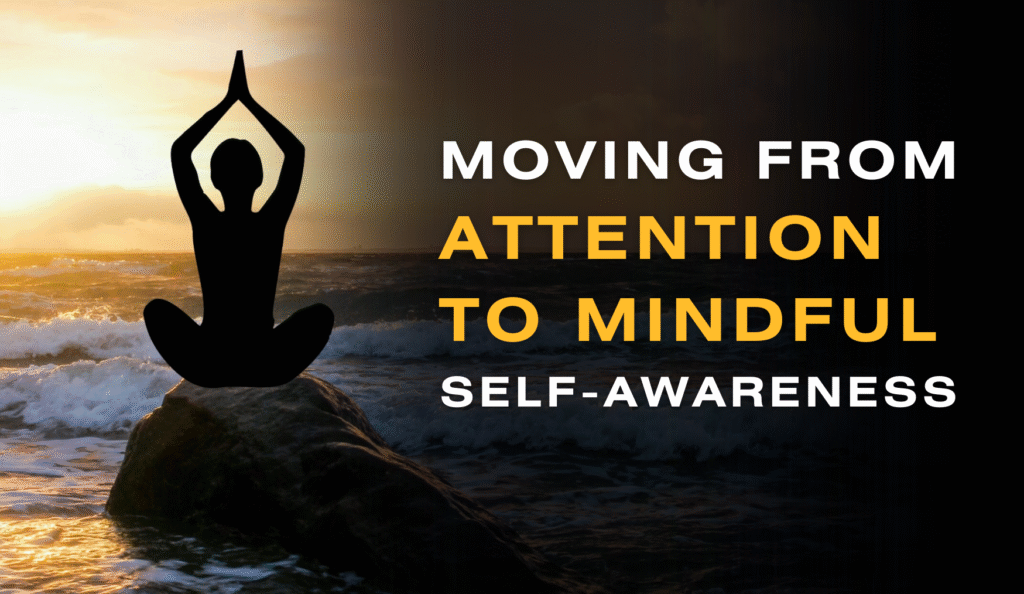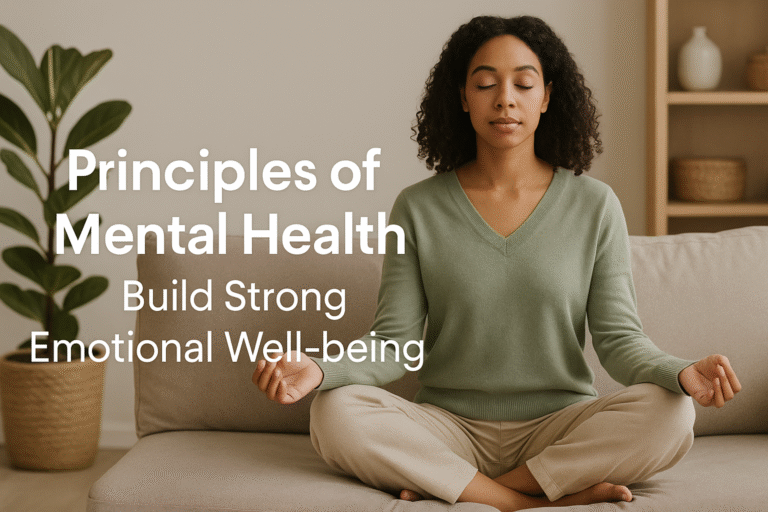In today’s fast-growing world, taking care of your mental health is becoming the same as maintaining physical fitness. While people often pay attention to diet, exercise, and regular checkups, mental health still gets less priority. But to flourish, we simply should not survive—we should understand and implement the principles of mental health. These principles serve as the foundation of emotional power, flexibility, and personal peace. In this article, we will detect 10 main principles of mental health, how they shape your life, and why they are essential for goodness. ,
🧠 What are Principles of Mental Health?
Mental health is beyond not only about a mental illness, but it also affects a person’s emotional and social welfare. How it affects how we think, feel, handle stress, relate to others, and make decisions.
Strong mental health allows you:
• Face the challenges of life
• Keep a healthy relationship
• Stay productive and concentrated
• Build emotional flexibility
• Feel full and purposeful
Now, dive into the main principles that support mental welfare.
🌿 1. Emotional Awareness and Regulation
The ability to recognize, understand, and manage your feelings is the firstbaseof mental health.
Emotional awareness helps you:
• Reply instead of response
• communicate effectively
• Reduce impulse behavior
• Navigate the struggle peacefully
When you learn to regulate your feelings, you are capable of living in stressful situations and maintaining inner peace during chaos.
✅ Practice Tip: Start a daily magazine or use mood-tracking apps to increase self-awareness.
💪 2. pliability: The Power to Bounce Back
Flexibility is the ability to overcome stress or trauma. Life brings challenges, but mentally healthy people learn to strengthen even more. Flexibility does not mean avoiding pain – it means facing it with strength and courage.
✅ Practice Tip: Define negative experiences again as development opportunities.
❤️ 3. Positive Self-Perception and Self-Confidence
How do you affect yourself every field of life. Made on strong mental health:
• Self-acceptance
• Self-confidence
• Balanced view of your strength and boundaries
Without self -esteem, your ability to make healthy decisions and make meaningful relations weakens.
✅ Practice tip: Accept your small victory and treat yourself with mercy—progress is step by step.
🤝 4. Healthy Relationships and Social Connection
Human beings are social creatures, and relationships. Whether with family, friends, we nurture our emotional and mental good.
Segregation can increase the risk of the depression, anxiety, and even heart disease.
✅ Practice Tip: Create time for those who inspire you and support them, and make a healthy distance from those who do not.
🔍5. Self-recognition and Mindfulness
Self-recognition involves understanding your feelings, thoughts, and behaviors. Mindfulness enhances this by helping you remain grounded in the present moment.
Together, they help you:
• Manage stress
• Reduce anxiety
• Improve decision-making
✅ Practice Tip: Use breathing practice or guided attention to calm your ideas.

⚖️ 6. Mental and Emotional Balance
Balance is about being centered without working on any part of life-take care, relationships, feelings, or stress.
True mental good comes from harmony, not perfectly. Getting emotional balance helps you maintain perspective during high and low times.
✅ Practice Tip: Keep a work-life balance and avoid overcoming.
🔐 7. Personal Autonomy and Responsibility
Autonomy is about having control over your life and making independent decisions for yourself.
It is taking responsibility for your actions. Goodness creates confidence and maturity.
✅ Practice Tip: Make decisions combined with your values and accept the results with grace.
🌱 8. A sense of purpose and meaning
The spirit of meaning provides inspiration and satisfaction. Whether through the work of work, creativity, faith, or service, having a sense of purpose gives you the strength to push through difficult times.
✅ Practice tip: Take time to reflect on your basic values and set personal goals that actually matter the most to you.
🩺 9. Physical health and lifestyle integration
Mental and physical health are connected with depth. If you sleep 2 to 4 hours, unhealthy habits and the lack of physical activity can worsen symptoms of anxiety and depression. Remember, a healthy body keeps a healthy mind.
✅ Practice Tip: Limit the screen time for 7-8 hours of sleep, be physically active, and limit screen time to protect your mental health.
📞 10. Access to support and professional assistance
Mental strength also means how long it takes to reach. Help from a doctor or a help group is not a sign of weakness—this is a powerful step towards treatment.
There is no weakness in demanding treatment – only strength in choosing treatment.
✅ Practice Tip: Do not hesitate to reach out if you are struggling. Initial intervention makes recovery easier.
🔗 How to apply these Principles of Mental Health in daily life
It is mentioned here how to use mental health principles every day:
✔ Start small and stay consistent
Create daily habits for long-term changes. Start with a 10-minute mindfulness, journaling, or gratitude practice.
✔ Make your mental health visible
Talk about this. Encourage interactions in your family, workplace, and social circle.
✔ Give preference to happiness and comfort
Mental health is fruitful when you allow yourself to relax, recharge, and do so that bring happiness.
💡 General myths about mental health
🧠 Clean some common myths about your mental health.
❌ Myth 1: Mentally strong people can never feel worried
✅ Truth: Everyone undergoes emotional ups and downs. it is a natural part of life.
❌ Myth 2: Therapy is only for people with many mental illnesses
✅ Truth: Therapy is for someone who wants to develop, heal, or face life more effectively.
❌ Myth 3: You can just “snap out”
✅ Truth: Mental health is complex and requires time, support, and understanding—not quick improvement. It takes time, care, and often professional support.
📊 Why Understanding These Principles of Mental Health Matters
Understanding the principles of mental health gives you equipment:
• Improve your life quality
• Manage stress and avoid burnout
• Build strong relationships
• Increase in productivity and creativity
• Stop long-term mental illness
Whether you are a student, professional, parent, or caregiver, these principles apply to all.
🧭 Conclusion: Your Mental Health Is Your Power
Mental welfare is not a luxury—this is a daily requirement. When you are committed to these main principles, you will be prosperous if you are not alive.
Even the smallest steps you take today can build a stronger tomorrow. Do not wait until you hit a breaking point to prioritize your goodness. Start by prioritizing your mental health. The foundation of everything you expect to achieve.


